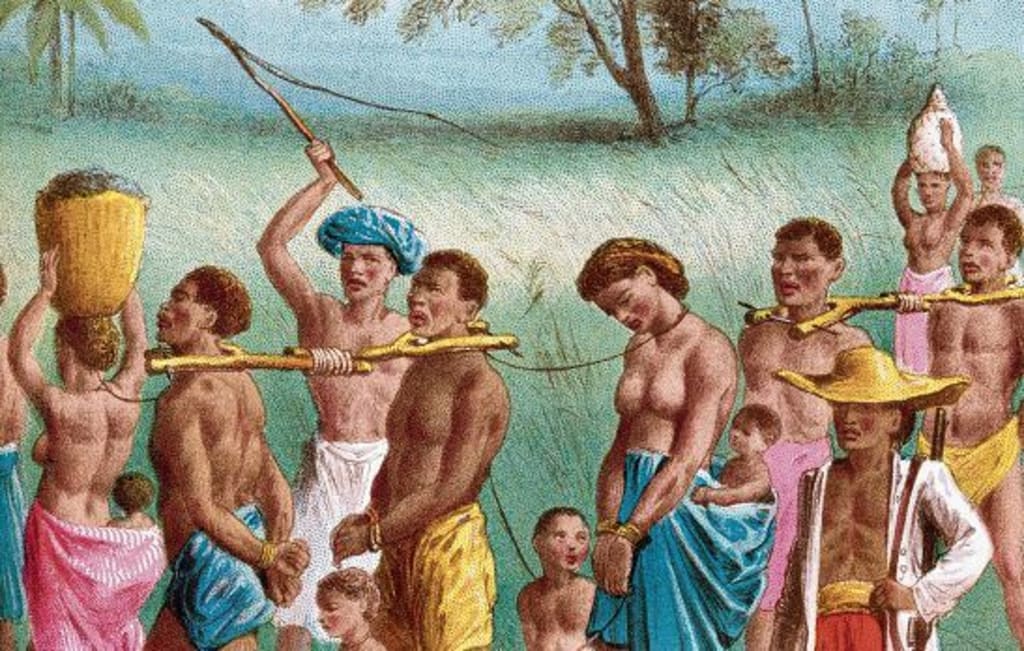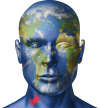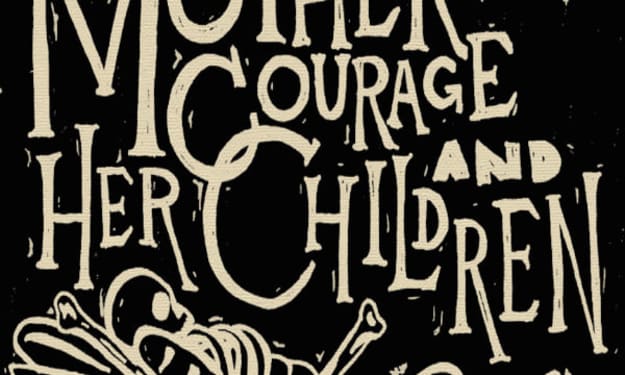Transatlantic Slave Trade
Early Contacts and the Transatlantic Slave Trade

17th - 19th Centuries
Dutch Involvement in the Slave Trade: During the 17th century, the Dutch were actively involved in the transatlantic slave trade through the Dutch West India Company (WIC). They transported enslaved Africans to the Americas, primarily to Dutch colonies in the Caribbean and South America.
African Presence in the Netherlands: Some Africans arrived in the Netherlands during this period, often brought by wealthy merchants and officials. These individuals typically worked as servants or laborers, and their presence, though limited, was notable in cities like Amsterdam and Rotterdam.
Colonial Period
19th - 20th Centuries
Colonial Subjects: With the establishment and expansion of Dutch colonies in Africa (notably in South Africa) and the Caribbean, there were increased interactions between Africans and the Dutch. Some Africans, especially from these colonies, moved to the Netherlands for education or work.
Indonesian and Surinamese Connection: During the colonial period, there was also significant migration from Indonesia and Suriname, which included people of African descent. These individuals often faced racial discrimination but contributed to the multicultural fabric of Dutch society.
Post-War Immigration
1945 - 1970s
Post-Independence Migration: After World War II and the subsequent decolonization, the Netherlands saw an increase in immigrants from former colonies, including Suriname and the Dutch Antilles. Many of these immigrants were of African descent.
Economic Opportunities: The post-war economic boom attracted many workers from abroad, including African countries. These immigrants contributed to various sectors of the Dutch economy, particularly in labor-intensive industries.
Modern Migration
1980s - Present
Refugees and Asylum Seekers: In recent decades, the Netherlands has become a destination for refugees and asylum seekers from various African countries, including Somalia, Eritrea, and Sudan, fleeing conflict and persecution.
Diaspora Communities: Today, there are vibrant African diaspora communities in the Netherlands, particularly in cities like Amsterdam, Rotterdam, and The Hague. These communities are diverse, with people from a wide range of African countries and cultural backgrounds.
Social and Cultural Contributions
Cultural Influence: Africans in the Netherlands have made significant contributions to Dutch culture, including music, cuisine, fashion, and art. Afro-Dutch musicians and artists have gained national and international recognition.
Political and Social Activism: Members of the African community have been active in advocating for social justice, anti-racism, and equal rights. They have played a crucial role in raising awareness about issues such as racial profiling, discrimination, and the legacy of slavery.
Challenges and Opportunities
Integration and Discrimination: While many Africans have successfully integrated into Dutch society, challenges remain. Issues such as discrimination, unemployment, and social exclusion continue to affect the community.
Educational and Economic Progress: There have been significant strides in education and economic participation among Africans in the Netherlands. However, disparities still exist, and ongoing efforts are needed to address these gaps.
Notable Figures and Contributions
Sports: Many Afro-Dutch athletes have excelled in various sports, bringing pride to the nation. Notable names include footballers like Ruud Gullit and Clarence Seedorf.
Academia and Literature: African scholars and writers in the Netherlands have contributed to academic discourse and literature, enriching Dutch intellectual life.
In conclusion, the story of Africans in the Netherlands is one of resilience, cultural exchange, and significant contributions to Dutch society. While challenges persist, the African community continues to thrive and shape the multicultural landscape of the Netherlands.
Causes of Early Contacts and the Transatlantic Slave Trade
The early contacts between Europeans and Africans and the subsequent development of the transatlantic slave trade were driven by a combination of economic, political, social, and technological factors. Here are some key causes:
Economic Factors
1. Demand for Labor:
Agricultural and Mining Labor: The colonization of the Americas created a demand for labor to work on plantations growing cash crops like sugar, tobacco, and later cotton, as well as in mines extracting precious metals.
Decline of Indigenous Populations: The indigenous populations of the Americas were decimated by disease, warfare, and harsh working conditions, creating a labor shortage that European settlers sought to fill with enslaved Africans.
2. Profit Motive:
Economic Profit: The transatlantic slave trade was highly profitable for European traders and investors. The trade involved a triangular route where European goods were exchanged for African slaves, who were then sold in the Americas, with the proceeds used to purchase American goods for sale in Europe.
Mercantilism: European nations adopted mercantilist policies aimed at maximizing exports and accumulating wealth, often through colonial expansion and exploitation of resources, including human labor.
Political Factors
3. European Rivalries and Expansion:
Colonial Competition: European powers such as Portugal, Spain, France, Britain, and the Netherlands were in fierce competition to establish and expand their overseas empires. The slave trade was integral to the economic success of their colonies.
State Support: Many European governments supported and regulated the slave trade, granting monopolies and charters to companies like the Dutch West India Company, which was deeply involved in the trade.
Social and Cultural Factors
4. Racial Ideologies:
Justification of Slavery: Europeans developed racial ideologies that dehumanized Africans and justified their enslavement. These ideologies were reinforced by pseudo-scientific theories and religious interpretations that portrayed Africans as inferior and suited for labor.
5. Existing African Slave Systems:
Internal Slavery in Africa: Slavery existed in various forms in Africa long before the arrival of Europeans. African rulers and merchants were sometimes willing to trade captives taken in wars or raids with European traders in exchange for goods, such as firearms, alcohol, and textiles.
Technological Factors
6. Maritime Advancements:
Navigation and Shipbuilding: Advances in navigation, cartography, and shipbuilding in the 15th and 16th centuries enabled Europeans to undertake long ocean voyages, facilitating the exploration of the African coast and the establishment of trade routes.
Military Technology: European military technology, including guns and cannons, allowed them to exert control over key coastal areas and negotiate with African leaders from a position of strength.
Key Events and Developments
7. Portuguese Exploration:
Early Pioneers: Portugal was one of the first European nations to explore the African coast, beginning in the 15th century. Portuguese explorers, such as Prince Henry the Navigator, established trading posts and engaged in the early stages of the Atlantic slave trade.
8. Sugar Plantations in the Atlantic:
Colonization of Islands: The establishment of sugar plantations on Atlantic islands such as Madeira, the Canary Islands, and São Tomé in the 15th century demonstrated the profitability of plantation agriculture and the need for a large, cheap labor force, leading to the importation of African slaves.
Summary
The transatlantic slave trade was a complex and multifaceted phenomenon driven by economic motives, political ambitions, social and cultural ideologies, and technological advancements. European demand for labor in the New World, coupled with the profitability of the trade, led to the large-scale transportation and exploitation of African people, profoundly shaping the histories of Africa, Europe, and the Americas.
About the Creator
Nouhou Balamtockhan
I'm someone who values humility and openness. I believe in being approachable and honest in all my interactions. I'm always eager to learn and grow from new experiences.
Enjoyed the story? Support the Creator.
Subscribe for free to receive all their stories in your feed. You could also pledge your support or give them a one-off tip, letting them know you appreciate their work.






Comments
There are no comments for this story
Be the first to respond and start the conversation.